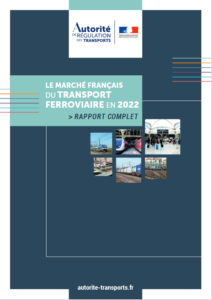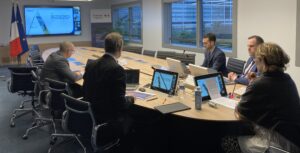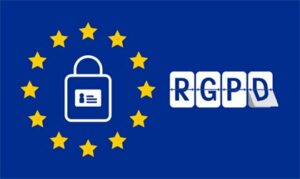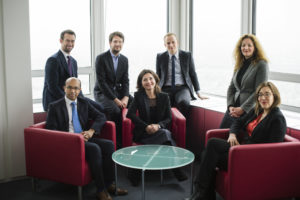
Team IRG-Rail within Arafer : in the center, Anne Yvrande-Billon, 2017 Chairperson of IRG-Rail. To her left, Laurent Monjole, head of European and international affairs, to his right, Aude Le Lannier co-chair of the market monitoring working group. Standing (from left to right): Mathias Laffont, co-chair for the charges for service facilities working group, John Moore, chair of the charges working group, Pierre Devoize, European affairs officer and Sophie Ayitey, executive assistant. © V. Pancol
Depuis le 1er janvier 2017, l’Arafer a pris la tête de l’IRG Rail, groupe des 29 régulateurs ferroviaires européens indépendants. C’est Anne Yvrande-Billon, vice-présidente de l’Autorité qui en assure la présidence.
Fondé pour renforcer les échanges entre régulateurs européens et développer des approches communes pour la régulation du secteur ferroviaire, l’IRG-Rail est aujourd’hui un partenaire reconnu.
2017 sera une année de réflexion stratégique : dans un contexte européen d’ouverture à la concurrence des marchés domestiques de voyageurs prévue à partir de 2019, le rôle des régulateurs va s’intensifier et l’IRG-Rail devra donc se saisir des problématiques qui accompagnent cette nouvelle donne.
Les régulateurs vont aussi participer au débat lancé par la Commission européenne sur l’accès et la tarification des installations de service dans la perspective d’un acte d’exécution attendu au cours du deuxième semestre 2017.
Ils apporteront également leur contribution aux travaux que la Commission envisage de lancer sur deux actes d’exécution pris en application du 4ème paquet ferroviaire. Le premier portera sur le test d’atteinte à l’équilibre économique susceptible d’être réalisé à l’ouverture des services ferroviaires non conventionnés à la concurrence, le deuxième sera consacré aux modalités de coopération entre les régulateurs sur les sujets transfrontaliers, un thème sur lequel l’Arafer et son homologue britannique, l’ORR, ont déjà travaillé, dans le cadre de l’élaboration du cadre de la corégulation de l’accès au Tunnel sous la Manche.
 French rail & road regulatory body is chairing IRG-Rail in 2017
French rail & road regulatory body is chairing IRG-Rail in 2017
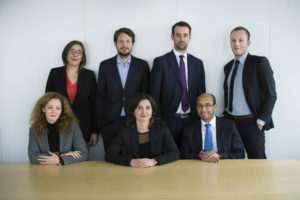
Team IRG-Rail within Arafer : in the center, Anne Yvrande-Billon, 2017 Chairperson of IRG-Rail. To her rigt, Laurent Monjole, head of European and international affairs, to her left, Sophie Ayitey, executive assistant. Standing (from left to right): Aude Le Lannier co-chair of the market monitoring working group, John Moore, chair of the charges working group, Mathias Laffont, co-chair for the charges for service facilities working group, Pierre Devoize, European affairs officer. © V. Pancol
Since January 1st, the French rail & road regulatory body (Arafer) is leading IRG Rail, a group of 29 independent European railway regulators. Anne Yvrande-Billon, vice-president of Arafer is the 2017 Chairperson.
Founded to strengthen exchanges between European regulators and develop common approaches on railway regulation, IRG-Rail has now become a recognised partner.
2017 will be a strategic year for regulation: the European context of opening domestic markets to competition starting from 2019 intensifies the role of regulators. IRG-Rail will have to tackle the issues that come with these new circumstances.
European regulators will therefore join the debate launched by the European Commission on access to and charges for service facilities. In this perspective, an implementing act is expected during the second semester of the year.
They will also contribute to two implementing acts that the European Commission will be launching regarding the application of the fourth railway package. The first one concerns the assessment of the impact of open access lines on public contract services (economic equilibrium test). The second will be focus on cooperation between regulators on cross-border issues, a topic Arafer and its British counterpart, the Office of rail & road (ORR) have already worked on, within the framework of co-regulation for access to the Channel Tunnel.

 French rail & road regulatory body is chairing IRG-Rail in 2017
French rail & road regulatory body is chairing IRG-Rail in 2017